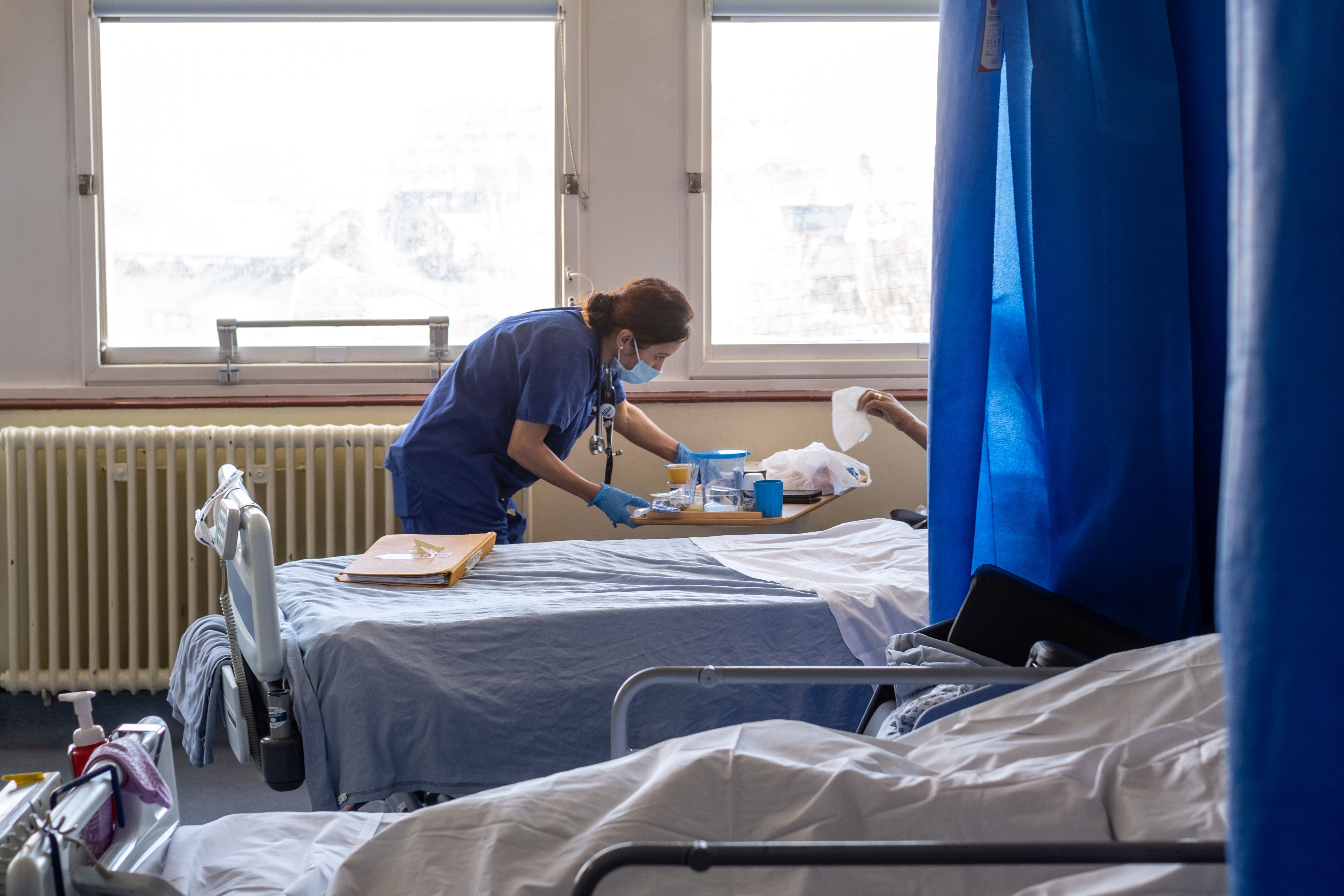Norovirus cases among over-65s highest in more than a decade
Laboratory cases are currently running 66% above average.

Your support helps us to tell the story
From reproductive rights to climate change to Big Tech, The Independent is on the ground when the story is developing. Whether it's investigating the financials of Elon Musk's pro-Trump PAC or producing our latest documentary, 'The A Word', which shines a light on the American women fighting for reproductive rights, we know how important it is to parse out the facts from the messaging.
At such a critical moment in US history, we need reporters on the ground. Your donation allows us to keep sending journalists to speak to both sides of the story.
The Independent is trusted by Americans across the entire political spectrum. And unlike many other quality news outlets, we choose not to lock Americans out of our reporting and analysis with paywalls. We believe quality journalism should be available to everyone, paid for by those who can afford it.
Your support makes all the difference.Norovirus cases in England have risen “significantly”, with levels among over-65s the highest in more than 10 years, figures show.
The majority of outbreaks are in care homes, but there have also been increases in schools and hospitals.
Health experts urged people with symptoms to stay at home and not to return to work, or send sick children to school, until 48 hours after symptoms have cleared.
Cases of norovirus reported by laboratories are currently running 66% above the average for the past five seasons, according to the UK Health Security Agency (UKHSA).
But because only a small number of people seek medical help for the virus, prevalence within the wider community is likely to be much higher.
The biggest increase in laboratory-confirmed norovirus is among people aged 65 and over.
While high numbers of cases in this age group can be expected at this time of year, current levels haven’t been seen in more than a decade, the UKHSA said.
Norovirus is the most common infectious cause of vomiting and diarrhoea.
It spreads easily through contact with someone who has the virus or with contaminated surfaces.
While most people make a full recovery within two or three days, the virus can lead to dehydration, especially among the very young, elderly or those with weakened immune systems.
Do not return to work until 48 hours after norovirus symptoms have cleared
Dr Lesley Larkin of the UKHSA Gastrointestinal Infections and Food Safety Division, said: “Norovirus levels are currently the highest we have seen at this time of year in over a decade.
“Most reported cases are in the over-65s and we’re also seeing a rise in reported outbreaks, particularly in care home settings.
“Please stay at home if you are experiencing norovirus symptoms and do not return to work – particularly if you work with vulnerable people or food – or send sick children to school or nursery until 48 hours after symptoms have cleared.
“If you have a loved one in a care home or hospital, please avoid visiting until 48 hours after symptoms have cleared. Regular hand washing is really important to help stop the spread of this bug, but remember, alcohol gels do not kill off norovirus so soap and warm water is best.”
Hospital cases of norovirus in England have nearly doubled week-on-week, NHS data shows.
It is a really unpleasant illness to catch, but for the vast majority of people it will usually pass in a couple of days, and self-treating at home is the best way to help yourself and avoid putting others at risk
An average of 743 adult hospital beds were occupied last week by patients with diarrhoea and vomiting or norovirus-like symptoms, up 88% from 393 in the week to January 29.
At this point last year the average stood at 302.
Professor Stephen Powis, NHS medical director for England, said hospital cases of norovirus have risen “significantly” in line with what is being seen in the community and in care homes.
“It is a really unpleasant illness to catch, but for the vast majority of people it will usually pass in a couple of days, and self-treating at home is the best way to help yourself and avoid putting others at risk,” he added.